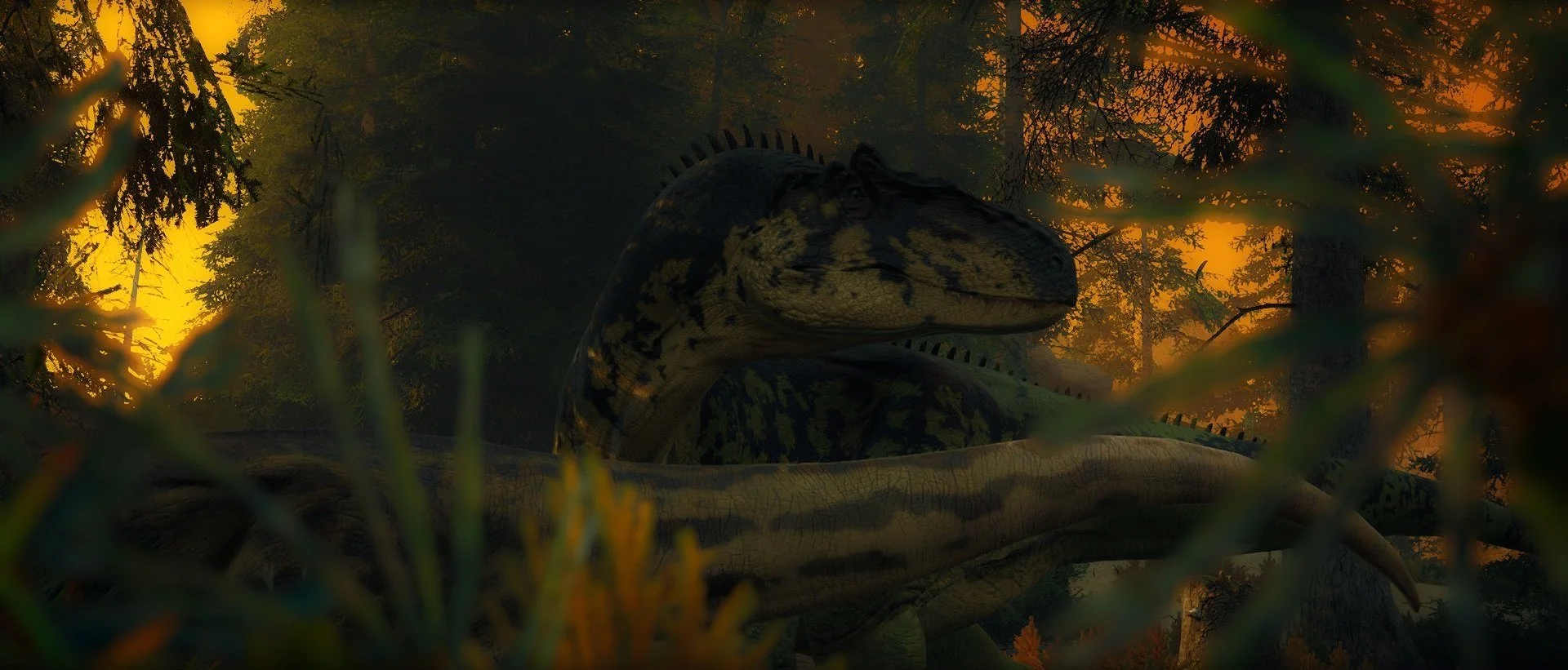Dilophosaurus
Tier: 2
Type: Terrestrial carnivore
Passive growth time: 2 hrs 11 mins
Pack size: 8 sub adults/adults, 1-16 juveniles/adolescents
Hierarchy: Patriarchal
Mating bond: Polygyny
Nest size: 1-4 offspring per pair
Diet tags: Carnivore, non-cannibalistic, opportunistic, scavenger & ovivore
Preferred food: Tier 1-4 herbivores & carnivores
Species specific rules: If they have at least 4 sub adults/adults, they can also hunt Tier 5 herbivores & carnivores. If they have at least 6 sub adults/adults, they can also hunt Tier 6 herbivores & carnivoresBehavior
Dilophosaurus are very social little creatures, you can often find them cooing and snuggling together, play fight or hunting. They are very coordinated, always communicating together to help take down bigger game than themselves. Dilophosaurus tends to bully younger members, to toughen them up for the real world. Because of the bullying Dilophosaurus experience, they tend to be very jumpy creatures, always prepared to fight anyone at the slightest change in attitude. They are also very intelligent creatures and will not be easily fooled, they can be found playing tricks on others, or attempting to sneak up on packmates to give them a scare.
Recommended behaviors
╸Spend most of their time outside of hunting with their pack and showing affection towards packmates and strengthening bonds.
╸Move mostly around forested areas where their prey will get disoriented.
╸Hunt mostly at night, or times with low visibility to help overwhelm their prey.
╸Bully younger or new packmates.
Mating
During mating season the lead Dilophosaurus, most often a male will get their pick of the females. Once a match has been made, they will wind around each other and let out happy cooing sounds. Singing is a big part of a Dilophosaurus mating ritual, only those who practice their song and perfect it will be successful.
Nesting & offspring
When a female is ready to lay her eggs, she will break off from the rest of her pack and build a nest privately. Young are usually hidden at their most delicate stages as bullying can be rough and babies have been killed because of it. Once the young reach adolescence, their Mother will take them to meet the rest of the pack, where they begin finding their place in the pack. Young Dilophosaurus are very rambunctious and noisy, it is at this phase in life where the pack judges if the young will be strong helpful members, or weaker links that could slow them down.




